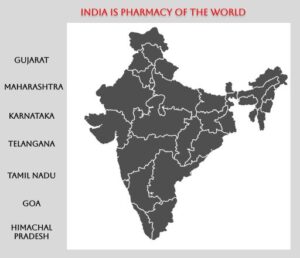
What is GxP?
GxP stands for “Good Practices,” a set of regulations ensuring safety, quality, and compliance in industries like pharmaceuticals, biotechnology, and food production.
The “x” is a placeholder for specific areas, such as Manufacturing (GMP), Clinical (GCP), and Laboratory (GLP). These guidelines are crucial for protecting consumer health and ensuring regulatory compliance.
This article will break down GxP, its different types, why it matters, and how businesses can follow these regulations.
Why is GxP Important?
Rgulations help companies produce safe and effective products while preventing errors, contamination, and fraud.
Regulatory agencies like the FDA (U.S. Food and Drug Administration), EMA (European Medicines Agency), and WHO (World Health Organization) enforce these guidelines.
Following GxP is essential because it:
- Ensures product quality and consistency.
- Protects patient and consumer safety.
- Helps businesses comply with global regulations.
- Reduces risks of legal and financial penalties.
- Increases trust in the industry.
Explore a leading manufacturer of APIs.
With over 10 years of expertise, we ensure GMP compliance and provide reliable, high-quality solutions.
Now, let’s explore the different types of GxP.
Types of GxP Regulations
1. Good Manufacturing Practice (GMP)
GMP ensures that products are consistently produced and controlled according to quality standards. It applies to industries like pharmaceuticals, medical devices, cosmetics, and food.
Key GMP Principles:
- Maintain clean facilities and equipment.
- Ensure quality control testing.
- Train employees on compliance.
- Keep accurate documentation.
- Establish procedures to prevent contamination.
2. Good Clinical Practice (GCP)
GCP governs clinical trials to ensure the safety and rights of participants. It is essential in pharmaceutical and medical research.
Key GCP Principles:
- Obtain informed consent from participants.
- Follow ethical guidelines.
- Maintain accurate trial records.
- Ensure qualified investigators conduct trials.
- Report adverse events properly.
3. Good Laboratory Practice (GLP)
GLP ensures the reliability of laboratory testing and data integrity. It is crucial in drug development and environmental studies.
Key GLP Principles:
- Use validated methods and equipment.
- Ensure trained personnel conduct tests.
- Maintain traceable records.
- Conduct data audits.
- Ensure test substances are properly stored.
4. Other GxP Regulations
Aside from GMP, GCP, and GLP, there are other specialized GxP guidelines:
- Good Distribution Practice (GDP): Ensures proper handling, storage, and transportation of products.
- Good Documentation Practice (GDocP): Covers accurate record-keeping to ensure compliance.
- Good Pharmacovigilance Practice (GVP): Focuses on monitoring drug safety post-approval.
How to Implement GxP in Your Business
To comply with GxP regulations, companies should follow these steps:
1. Develop Standard Operating Procedures (SOPs)
SOPs outline the correct processes for manufacturing, testing, and record-keeping.
2. Train Employees
Ensure staff understands GxP guidelines and their role in compliance.
3. Maintain Proper Documentation
All processes must be recorded accurately for audits and inspections.
4. Conduct Regular Audits
Perform internal and external audits to identify compliance gaps.
5. Use Technology for Compliance
Implement electronic documentation systems and quality management software to streamline processes.
Consequences of Non-Compliance
Failing to follow GxP regulations can lead to:
- Product recalls
- Hefty fines
- Legal actions
- Loss of consumer trust
- Business shutdowns
For example, pharmaceutical companies that fail GMP inspections may be banned from selling their products.
Final Thoughts
GxP regulations are the foundation of quality, safety, and compliance in regulated industries. By following these guidelines, companies can protect consumers, meet global regulatory requirements, and maintain trust in their products.
If your business operates in pharmaceuticals, biotechnology, or food production, ensuring GxP compliance is not just a legal requirement—it’s a responsibility.
FAQs
What does GxP stand for?
GxP stands for “Good Practice” regulations, where “x” represents different fields such as Manufacturing (GMP), Clinical (GCP), and Laboratory (GLP). These regulations ensure product safety, quality, and compliance in industries like pharmaceuticals, biotechnology, and food production.
Why is GxP compliance important?
GxP compliance is essential because it:
- Ensures product quality and consistency
- Protects consumer and patient safety
- Helps companies meet global regulatory requirements
- Prevents legal penalties and financial risks
- Builds trust in regulated industries
Who enforces GxP regulations?
Regulatory agencies such as the FDA (U.S. Food and Drug Administration), EMA (European Medicines Agency), MHRA (UK’s Medicines and Healthcare Products Regulatory Agency), and WHO (World Health Organization) enforce GxP compliance worldwide.
What industries require GxP compliance?
GxP applies to industries involved in health, safety, and quality-controlled products, including:
- Pharmaceuticals
- Biotechnology
- Medical devices
- Food production
- Cosmetics
- Veterinary medicines
- Agritech and medicinal cannabis
What are the key types of GxP regulations?
- GMP (Good Manufacturing Practice): Ensures safe and consistent product manufacturing.
- GCP (Good Clinical Practice): Regulates ethical and scientific conduct in clinical trials.
- GLP (Good Laboratory Practice): Maintains quality and integrity in laboratory studies.
- GDP (Good Distribution Practice): Controls storage and transportation of regulated products.
- GDocP (Good Documentation Practice): Ensures proper record-keeping for compliance.
- GVP (Good Pharmacovigilance Practice): Monitors drug safety post-approval.



